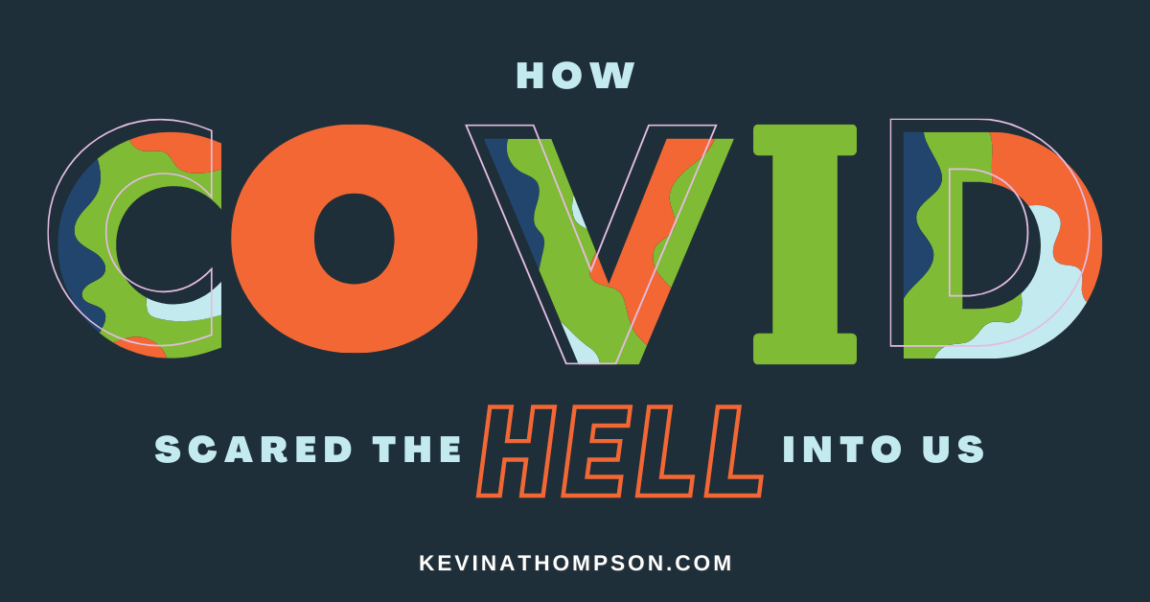COVID scared hell into us. None of us intended it to happen. Few of us even recognize it has happened. But I have very little doubt that one of the lasting impacts of COVID-19 is that we are experiencing more hell than any of us desire.
How else should we describe the isolation, loneliness, anxiety, uneasiness, frustration, uncertainty, and fear which seem to dominate our day? None of those sound like heaven. They all sound like characteristics of hell. Yet instead of describing a place of eternal judgment, they are the defining descriptors of the lives of many. We are experiencing a living hell.
But how has this happened?
It’s not the byproduct of well-intended scientists and/or health officials who have attempted to advise ways to keep us safe. It’s not because of Presidents, Governors, or government officials who have had impossible choices to make regarding lockdowns, school closures, or guidelines. We can’t even blame the media. (See: Churches, Love Your Governors)
For the average person who hasn’t been directly impacted by death or severe illness, COVID has scared hell into us. We have rejected the way of love and instead chosen the way of fear. The result of choosing a way other than love is that we end up closer to hell.
What does this look like in our lives? It means we have:
Grown more selfish. Rather than thinking outside of ourselves, we have become more self-centered. Consider the single most defining factor of how someone views COVID–it’s how closely they have been impacted. If I know someone young who died, I’m more likely to think society underreacted. If the only people I know who have suffered are older, I’m more likely to assume we overreacted.
Grown more arrogant. Remember a time in which some people were seen as more knowledgeable than others about certain issues? That day is over. The internet has made us all feel as though we are experts about everything which means we listen to no one. The only voices which have an influence on our lives are those who are confirming what we believe.
Grown more short-sided. One would think a pandemic would force us to confront our mortality and think about life after death. But most have not responded in that manner. Instead, we have become fixated on the quick fix, the immediate response, and whatever will bring me the most happiness at the moment.
What happens when we become more selfish, arrogant, and short-sided? At the moment it may feel as though we are thriving, but in reality, we are dying. The long history of humanity shows that destruction is the byproduct of a generation that is selfish, arrogant, and short-sided.
So what should we do?
The answer is to boldly choose to love even in the midst of the uncertainty and grief all around us. The last year has encouraged us to let every decision be driven by fear. While it’s understandable to experience fear, especially during a once-in-a-generation event, it is never wise to allow fear to drive the decisions we make.
Instead, we must recognize our fears and then place them to the side so that we can choose the loving way.
Love compels us to look beyond ourselves toward the well-being of others. It equips us to recognize those around us and to use our resources for their well-being.
Love humbles us to recognize the limits of our perspectives, understandings, and knowledge. It empowers us to submit to others who know more than we do on a given topic.
Love enables us to look past the moment and see the long-term consequences of our choices. It allows us to endure short-term negative effects in order to reap long-term positive rewards.
COVID has scared hell into us because anytime we choose fear over love we reap the negative consequences of choosing the lesser way.
Nobody is saying we shouldn’t be afraid. Fear is a legitimate response to a global pandemic, racial unrest, economic uncertainty, and the social isolation which have been present this past year. Yet dwelling in that fear and making choices from that fear is not the way forward. Fear never leads to outcomes we desire. Only love does.
We must choose the way of love. Even when we are afraid, uncertain, confused, frustrated, and grieving. Love always is the way.
This is the message of Fearless Families. It’s the reason the book is necessary for this time. For twelve months fear has dominated our lives.
- Have you loved better in those twelve months?
- Have you been more at peace?
- Have you thought less about yourselves and more about others?
- Have you become more aware of your limitations and been willing to submit to the expertise of others?
- Have you been more forgiving of the faults of others?
- Have you sought understanding in places of disagreement or regularly assumed the best of those with whom you disagree?
- Have you kept the long view in mind knowing that temporary circumstances don’t matter as much as long-term outcomes?
- In spite of the circumstances, has this year been defined more by love than by fear?
If the answer to any of those questions is “no,” you need to read Fearless Families. It will empower you to recognize the often unseen influence fear places on our lives and will empower you to choose a better way. It will help you see how your family, team, co-workers, and friends are either increasing your anxieties or lessening them. The book will assist you in creating a game plan of how to feel fear, but not be driven by it.
COVID scared the hell into us, but thankfully we don’t have to leave it there. Instead, love can draw the hell out of us and leave us with a selfless, humble, long-lasting grace.




2 Responses to How COVID Scared the Hell Into Us